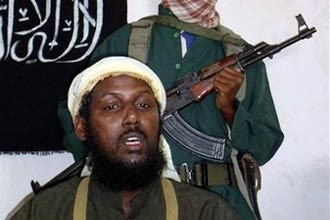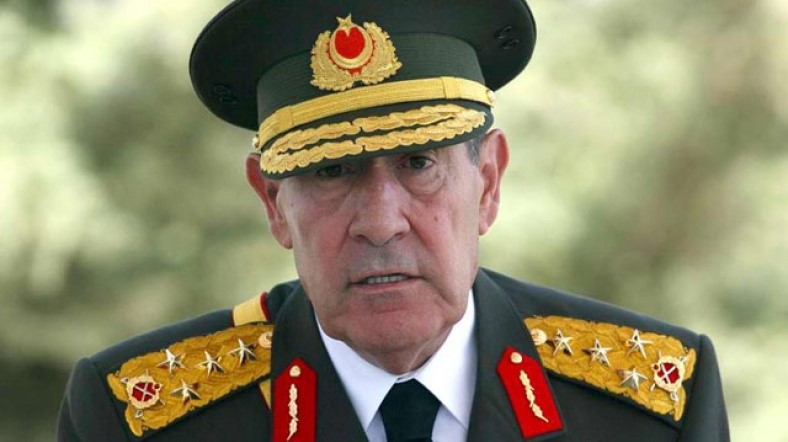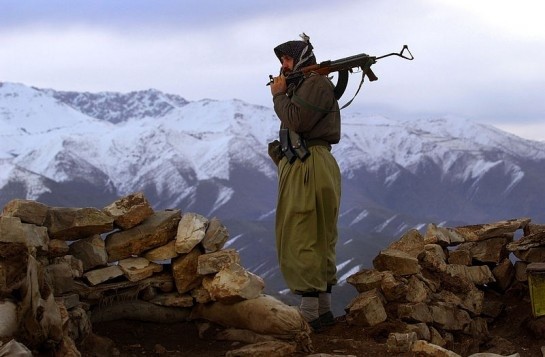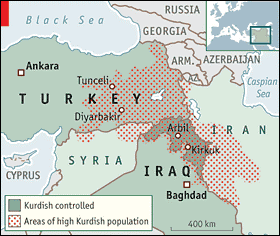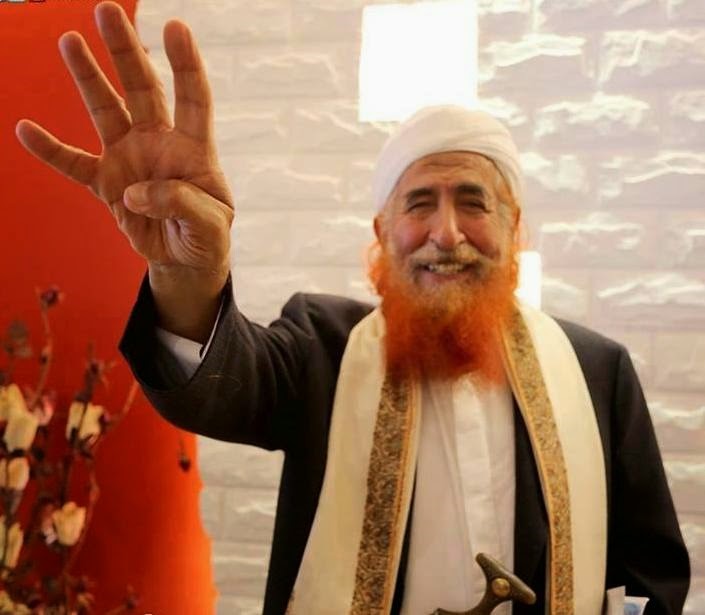Andrew McGregor
April 26 2007
The U.S.-supported Ethiopian invasion that expelled Somalia’s Islamist government last December is rapidly deteriorating into a multi-layered conflict that will prove resistant to resolution. Resistance to Ethiopian troops and the Ethiopian-installed Transitional Federal Government (TFG) is inspired by nationalism, religion, economic factors and clan loyalties, yet all of these motivations are part of a constantly shifting pattern of allegiances in which the only common characteristic is a desire to expel foreign troops from Somalia. Local warlords and clan leaders who were deprived of power by the Islamic Courts Union (ICU) are now scrambling to reassert control over their small fiefdoms in Mogadishu, while many former ICU gunmen have transferred their allegiance to clan militias.
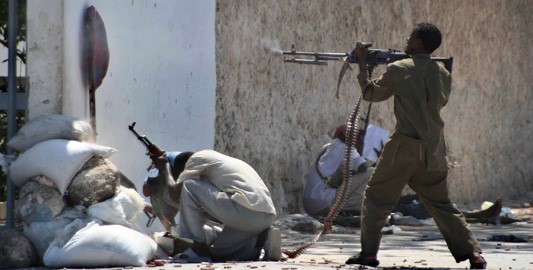 Fighting in the Somali capital of Mogadishu has created over 300,000 civilian refugees. Thousands more (nearly all from the Hawiye clan that dominates the capital) have been killed as residential areas become battlegrounds. Only one overwhelmed hospital is open as Ethiopian troops are using other hospitals as barracks. The Somali TFG is exacerbating the situation by imposing bureaucratic delays on the delivery of relief aid arriving in Mogadishu. Unable to resist the Ethiopian incursion, the ICU dissolved December 27, 2006, returning its stockpiles of weapons and vehicles to the clans and militias who had donated them. Since then, a number of leading elements in the resistance have emerged.
Fighting in the Somali capital of Mogadishu has created over 300,000 civilian refugees. Thousands more (nearly all from the Hawiye clan that dominates the capital) have been killed as residential areas become battlegrounds. Only one overwhelmed hospital is open as Ethiopian troops are using other hospitals as barracks. The Somali TFG is exacerbating the situation by imposing bureaucratic delays on the delivery of relief aid arriving in Mogadishu. Unable to resist the Ethiopian incursion, the ICU dissolved December 27, 2006, returning its stockpiles of weapons and vehicles to the clans and militias who had donated them. Since then, a number of leading elements in the resistance have emerged.
The Hawiye
The Hawiye, one of Somalia’s four major clans, provided important support for the ICU in the south-central region of Somalia, which includes Mogadishu. Hawiye members (especially those of the powerful Habr Gidir Ayr sub-clan) dominated all of the ICU’s decision-making bodies. Former ICU leader Shaykh Hassan Dahir Aweys is a member of the Habr Gidir Ayr (one of four major sub-clans of the Hawiye). The Hawiye sub-clans have fought each other for years in Mogadishu, but there are signs that opposition to Ethiopian/TFG forces is beginning to unify formerly antagonistic groups.
Now operating from Yemen, Shaykh Aweys claims that U.S. government support for the Ethiopian occupation and the resulting civilian deaths is motivated by a need to exact revenge for the deaths of U.S. troops in Somalia in the early 1990s. The former ICU chairman insists that Ugandan and other African Union troops will receive the same treatment as the Ethiopians. According to the Shaykh, negotiations with the TFG are impossible until all foreign troops are removed from Somalia (Qaadisiya.com, April 15). On April 13, a sub-committee was formed from Hawiye representatives and Ethiopian officers in order to negotiate the terms of a cease-fire (HornAfrik Radio, April 13). A spokesman for the Hawiye cease-fire committee lashed out at the United States for its support of the Ethiopian invasion (Shabelle Media Network, April 7).
The TFG is dominated by the Darod, another of the major clans. The Hawiye suspect that the TFG is dedicated to the advancement of the Darod and the elimination of the Hawiye. Elders of the Hawiye clan pin responsibility for the devastation of Mogadishu on the TFG and have asked for an international commission to investigate the circumstances of the conflict (Radio Shabelle, April 15; Radio Banadir, April 14). Hawiye elders also accuse the TFG of recruiting only Darod into the army. To deflect such criticism, TFG Prime Minister Ali Muhammad Gedi recently appointed a notorious Hawiye warlord to the post of Somali chief of police (Garowe Online, April 18).
TFG President Abdullahi Yusuf Ahmad is from the Majerteen sub-clan of the Darod. He commanded Darod forces in battles against the Hawiye in the 1990s. The Hawiye believe that the Ethiopians are set on installing a Darod-dominated government intent on eliminating their clan. Claims of “ethnic-cleansing,” “war crimes” and “genocide” are increasingly used by the Hawiye to describe Ethiopian actions in Mogadishu. Relations between the Hawiye and the Darod clans were irreparably poisoned by the massacres of Darod by the Hawiye in Mogadishu after the overthrow of Somali dictator Siad Barre in 1991. Given this history, the arrival of President Yusuf and his well-armed veteran Darod militia was especially alarming to the Hawiye, who now fear retribution for the massacres of 1991. The intense fighting of the last month began when the president announced plans to forcibly disarm non-government militias in Mogadishu.
Deputy Prime Minister Husein Mohammed Farah Aideed has angered his comrades in the TFG by visiting the Eritrean capital of Asmara, where he accused Ethiopia of planning “genocide” in Somalia. Aideed, a former U.S. Marine, leads a militia drawn from the Habr Gidir Sa’ad sub-clan of the Hawiye. Notorious for changing sides, Aideed created a controversy earlier this year when he suggested Somalis and Ethiopians use a common passport. Having survived the resulting firestorm, Aideed appears to have made a strategic decision to now oppose the Ethiopian invasion.
Al-Shabaab
Al-Shabaab (The Youth) once served as an ICU-controlled elite militia. The group was formed in August 2006 from a core of fighters who played an important role in last year’s defeat of the Anti-Terrorist Alliance, a U.S. supported coalition of Somali warlords (Somaliland Times, August 12, 2006). The group became known for its ruthless methods that often discredited the ICU in international opinion. Many ICU leaders distanced themselves from Shabaab, fearing the militia’s radicalism would spark a new round of internecine fighting. Shabaab took heavy losses attempting to resist the Ethiopian advance into Somalia last December, but now it is more at home in the vicious urban warfare of Mogadishu.
After Aweys fled to Yemen, leadership of Shabaab passed to his former aide, Adan Hashi Ayro, a U.S.- and UN-designated terrorist and radical Islamist who is reported to have trained in Afghanistan prior to the September 11 attacks. U.S. spokesmen claimed that a January 8 airstrike by U.S. gunships wounded Ayro. The roughly 30 year-old Shabaab leader released an audiotape in March denying rumors of his death: “I will fight the troops who are enemies of my religion and who have invaded my homeland…and I am certain I will remove them by force soon” (Garowe Online, March 7). The Shabaab leader has several disputes with his own Habr Gidir Ayr sub-clan.
Mukhtar Robow “Abu Mansur” is another prominent Shabaab leader, accused by the United States of providing logistical support to al-Qaeda (U.S. Department of State, African Affairs Fact Sheet, January 25). Other Shabaab leaders include Afghanistan veteran Ahmad Abdi Godane and Ibrahim Haji Jama (“al-Afghani”), who is reported to have fought in Kashmir as well as in Afghanistan. “Al-Afghani” is wanted in the quasi-independent state of Somaliland, where he was sentenced last December to 25 years in prison on terrorism charges (Somaliland Times, December 9, 2006).
Typical of many Salafi militant groups, Shabaab offers an alternative to clan- or tribal-based movements, drawing on a wide base of recruits. The typical Shabaab gunman is a poorly-educated youth in his late teens or early twenties who has grown up in the midst of Somalia’s violent rivalries. Unlike former ICU colleagues who have found work with the re-emerging clan militias, the Shabaab fighter holds a rather inflexible and radical interpretation of Islam that compels him to undertake dangerous missions in the cause of creating an Islamist Somalia. This is a fairly new development in Somalia, where allegiance to ideology has tended to take second place to family and clan loyalties when under pressure. Many Shabaab fighters are reported to have undergone military training in Eritrea (Voice of America, January 6).
Shabaab fighters are often referred to as “the masked men” due to their habit of drawing red scarves across their faces during assaults on TFG and Ethiopian troops. The masks protect their identity not only from government forces, but also from Mogadishu residents, many of whom are bitterly unhappy about the civilian carnage resulting from Shabaab’s poorly-aimed mortars and the brutal retaliation of Ethiopian artillery on the residential districts that Shabaab uses as launching points for its reckless assaults. Many Mogadishu neighborhoods have hired vigilantes to prevent their use as firing-points by Shabaab fighters. Shabaab leader Adan Hashi Ayro claims that the mortar shells raining down on Mogadishu homes are fired by Ethiopian troops. Although Shabaab once numbered several thousand fighters, it probably does not field more than several hundred men at the moment.
In early April, U.S. Assistant Secretary of State for African Affairs Jendayi Frazer claimed that Eritrea and the “global jihadist network” were supporting Shabaab (Shabelle Media Network, April 7). Eritrea denies accusations from the United States that it is supporting and supplying the Somali insurgency, but there is little doubt that Asmara takes delight in the predicament of Ethiopia, a bitter enemy of Eritrea since the two countries fought an inconclusive but bloody border war in 1998-2000 that claimed 70,000 lives. A Hawiye spokesman insisted that clan leaders have no contact with Eritrea or the former ICU leadership (Radio Shabelle, April 9).
The Popular Resistance Movement
Another resistance group formed in January of this year is al-Harakah al-Muqawamah al-Sha’biyah fi al-Bilad al-Hijratayn (The Popular Resistance Movement in the Land of the Two Migrations, PRMLTM) (Qaadisiya.com, January 19). Led in the Banadir region by Shaykh Abdikadir, the movement has issued warnings to African Union peacekeepers that they can expect no different treatment than the Ethiopians. The PRM has since claimed responsibility for a March 12 attack on a Ugandan convoy. On March 21, an Ethiopian offensive against Habr Gidir strongholds in south Mogadishu was ambushed by hundreds of masked gunmen. The Ethiopians withdrew after a firefight lasting several hours, leaving their dead behind to suffer mutilation and burning before being dragged through the streets. The PRM claimed responsibility for the ambush (Associated Press, March 22).
Other Resistance Factions
Responsibility for a March 6 assault on the Mogadishu airport and a March 16 mortar attack on the presidential palace was claimed by the Tawhid wa’l-Jihad Brigades in Somalia (Unity and Struggle), apparently in response to the alleged rapes of Somali women by Ethiopian troops. The group promises a series of suicide attacks.
The Young Mujahideen Movement in Somalia is another group that has claimed attacks on Ethiopian troops, including an April 19 suicide bombing that allegedly involved the use of chemicals (SomaliNet, April 21).
Al-Qaeda in Somalia?
TFG Prime Minister Gedi maintains that the relentless shelling of north Mogadishu is designed to clear out “terrorist groups.” Using the now familiar language of those seeking U.S. military support, Gedi referred to “al-Qaeda operatives” while insisting that only terrorists opposed the government: “there are no Hawiye people involved in the conflict” (Somaliweyn Radio, April 21). The TFG seems well aware that clan warfare rarely brings the type of U.S. support that can be expected by allies in the war on terrorism. According to a Hawiye spokesman, Ethiopian officers insisted during a meeting with the Hawiye cease-fire committee that the attacks on Ethiopian positions in the capital were being carried out by al-Qaeda, a suggestion the Hawiye rejected. The spokesman added that the Hawiye community would prefer death over giving allegiance to President Abdullahi Yusuf (Radio Shabelle, March 23).
After an April 23 battle between two Darod sub-clans for control of the southern port of Kismayo, Prime Minister Gedi denied that there was any clan struggle for the city, blaming the fighting there on “al-Qaeda-linked terrorists from Mogadishu,” whom he alleged were also responsible for the deteriorating relations between Somaliland and Puntland (Shabelle Media Network, April 23).
Statements of support from al-Qaeda’s Ayman al-Zawahiri, foreign volunteers and diaspora returnees (not necessarily al-Qaeda affiliated) appear to have had little influence on the fighting so far. Scores of these poorly-trained fighters have been detained at the Kenyan border or picked up in Ethiopian security sweeps.
Conclusion
Ethiopia will never support a strong central government in Mogadishu that might ultimately prove capable of pressing Somali claims in the Ogaden region. Thus far, however, Ethiopia’s attempt to establish a weak Somali government that owes its existence to Ethiopian power has been a failure. On the other hand, the descent into chaos means Somalia no longer represents a threat to Ethiopia’s territorial integrity. If Ethiopia can manage to extricate its troops from Somalia in the near future, this might be interpreted as a victory in Addis Ababa.
Somali life is shaped by a unique social system that aids the survival of the individual, but in turn promotes schisms and hinders the creation of enduring alliances or devotion to ideological causes. Foreign occupation is possibly the only factor capable of uniting Somalis, but there are signs that resistance to Ethiopian/African Union troops may soon exist simultaneously with a Hawiye/Darod clan war. If the situation is allowed to deteriorate to that point, it may be years before peace can be re-established in Somalia.
This article first appeared in the April 26, 2007 issue of the Jamestown Foundation’s Terrorism Monitor

